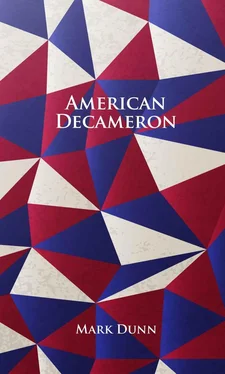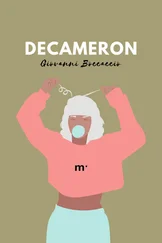“What happens to my teachers — the ones who won’t sign?”
“Well, you’ll just have to make them sign, Tim. You have to explain to them why it’s important for them to swallow their pride and do what in the end is really the best thing for the school.”
“Can you at least get the second sentence taken out?”
Cummings nodded. “I think I could even get Dorell to go along with it.”
Grimm thought for a moment. “So I really have no other choice, do I?” This question was posed to his friend, the Reverend Claxton.
“To be human is to compromise, Tim. Only Jesus Christ was allowed to stick unwaveringly to his principles.”
“I think,” interjected Cummings, “that you’ll be surprised how few of your teachers would be willing to sacrifice their jobs for a principle.”
“Or how many would choose to stay simply because of their affinity for you , Tim.” The reverend was smiling warmly at his friend.
In the end, after much handwringing and soul-searching, only one teacher refused to sign the contract, which was tantamount to agreeing to the loyalty oath. It was Mr. Gage, who taught junior high mathematics. The fact that in the end he was the only one to object to the point of taking a hard stand came as a surprise to both Superintendent Grimm and to his right-hand men, the Reverend Claxton and Director Rainwater, in spite of what had been speculated on board review day. Grimm decided to talk to Gage. He could always be called upon to speak his mind and he had a reputation for not holding back, regardless of the circumstances.
“It isn’t what you think at all, Tim,” said Gage, as the two men strolled through the darkened campus on the night before the students would be released for their much-anticipated winter break. “I’m almost sixty. I’ve spent nearly two-thirds of my life as a teacher here at Sanpitch. Excepting service in the military, there is no other job in this country that demands as much of one’s time and attention as being a boarding school teacher. Right now as we’re walking and talking I’m wondering in the back of my mind if my eighth-grade boys are really all asleep or have a few of them stolen down to the common room to trade Lash LaRue comic books and watch John Wayne on the late show. And this being the last night in this term, I have a mind to be intentionally negligent and creep right off to bed without checking on them.”
Harley Gage chuckled over the recklessness of his contemplated dereliction.
“Lookit, Tim — I wake up in the morning thinking about these boys, about all of our kids, and I go to bed at night praying that they get all the good breaks when they grow up and leave this place. This school has been my life and I’ve been quite blessed. It is all that I’ve had and all that I’ve ever wanted — to make some kind of small difference in these youngsters’ lives. I do hate sometimes the direction this country is headed, but I know that we’re raising kids who will be equipped to help make it better.
“Do I advocate the overthrow of this government by force or other unlawful means? What a question! And how terribly inconsequential when set beside those things that really do matter. But it’s important for at least one of us to send a message on behalf of all of the rest of us.”
Men in 1957 rarely showed the kind of physical affection that would come so much easier to their grandsons over fifty years later. But on that night, beneath a spangled late autumn sky in the Sanpete Valley of central Utah, two men shook hands in a way that more-than-adequately expressed the strength and solidity of their friendship — a friendship cemented by serious shared purpose. And John Wayne, with Mr. Gage’s blessing, fought the outlaws and the Apaches into the wee hours of the morning with no small number of rapt eighth-grade boys as witnesses.
1958 EXPLOSIVE IN SOUTH CAROLINA
2212, 03/12/58
Doris Daltry makes her husband Air Force Lieutenant Kenneth Daltry a Scotch and soda. It’s late. He’s tired. He’s also jittery and needs to relax.
“Did you collect all the pieces?” asks Doris, massaging her husband’s tight shoulders through his t-shirt.
“By the hardest. There was one little boy who really dug in his heels — wouldn’t give up any of what he’d found. His father really had to work on him. Pretty uncomfortable situation. The kid’s crying, the mother’s standing there giving me the evil eye.” Kenneth groans at the memory. Then he moans, this time with pleasure. “Ah, that knot right there. Really dig in, honey.”
As Doris kneads harder, she asks, “Have they finished combing the area?”
Kenneth shakes his head. “They’ll be going over it for a week at least.”
“Remember what I said to you on Monday morning?”
“Something about a nightmare you’d had the night before. Hiroshima. I’d told you Sunday night to put Hersey’s book down and stop reading it right before you went to bed.”
“And I asked you that next morning—”
“Not if anyone could ever drop a bomb on us, but whether we might ever accidentally drop a bomb on ourselves.”
Kenneth turns around and kisses his wife. “In light of yesterday’s atomic bomb mishap, I’d say your question was a pretty timely one.”
BEFORE THAT:
1724, 03/12/58
Lieutenant Daltry is sitting in the living room of Mr. and Mrs. Caleb Flowers. Caleb Junior is crying.
“Caleb,” says Caleb Senior, sternly, “go and get your atomic bomb fragments and give them to Lieutenant Daltry. They aren’t yours to keep.”
“The other kids got to keep theirs.”
“I’m afraid that isn’t true, Caleb,” says Daltry, the fatigue of the long afternoon beginning to wear on his even-tempered, spit-and-polish military mien. “I’ve visited the homes of all of your friends and they’ve turned over everything they have. You’re the last one on my list.”
“Molly Greaney said she was going to make an ashtray out of the piece she found.”
“Well, that would be a little hard now, son.”
“As if the Greaneys need another ashtray in that house,” opines Mrs. Flowers with puckered, judgmental lips. “That den of theirs is like an ashtray museum.”
“Go and get the pieces of the bomb you found,” says Mr. Flowers. “Give them to the lieutenant so he can go home. He has a long drive ahead of him. You have a long drive back to Savannah, am I right, Lieutenant? Be a good patriot, son.”
As the boy goes reluctantly and with residual sniffles to bring his bag of shiny metallic shrapnel from the Mark 6 30-kiloton bomb that was accidentally dropped on his neighborhood only the day before, Mrs. Flowers sighs and says, “I was reading the book Hiroshima , which I checked out of the library last week. I was wondering if someday a bomb might be dropped on us! ”
“By accident?” asks her husband.
“No. On purpose. I would never have believed that a bomb could be dropped by accident .”
BEFORE THAT:
2152, 3/11/58
Lieutenant Daltry receives orders to drive to Mars Bluff and assist in securing the area. There have been reports that children who live near the blast have been taking fragments of the bomb home as souvenirs. It will be his job to see that all fragments are collected, even if this means going door to door to confiscate them.
Daltry asks his commanding officer if it has been established that the area is free of radiation contamination. He is told that nothing has registered beyond the level of normal background radioactivity.
Daltry sighs with relief. Just the morning before, his wife had related the horrors of radiation poisoning that she had read about in Hiroshima by John Hersey.
Читать дальше












